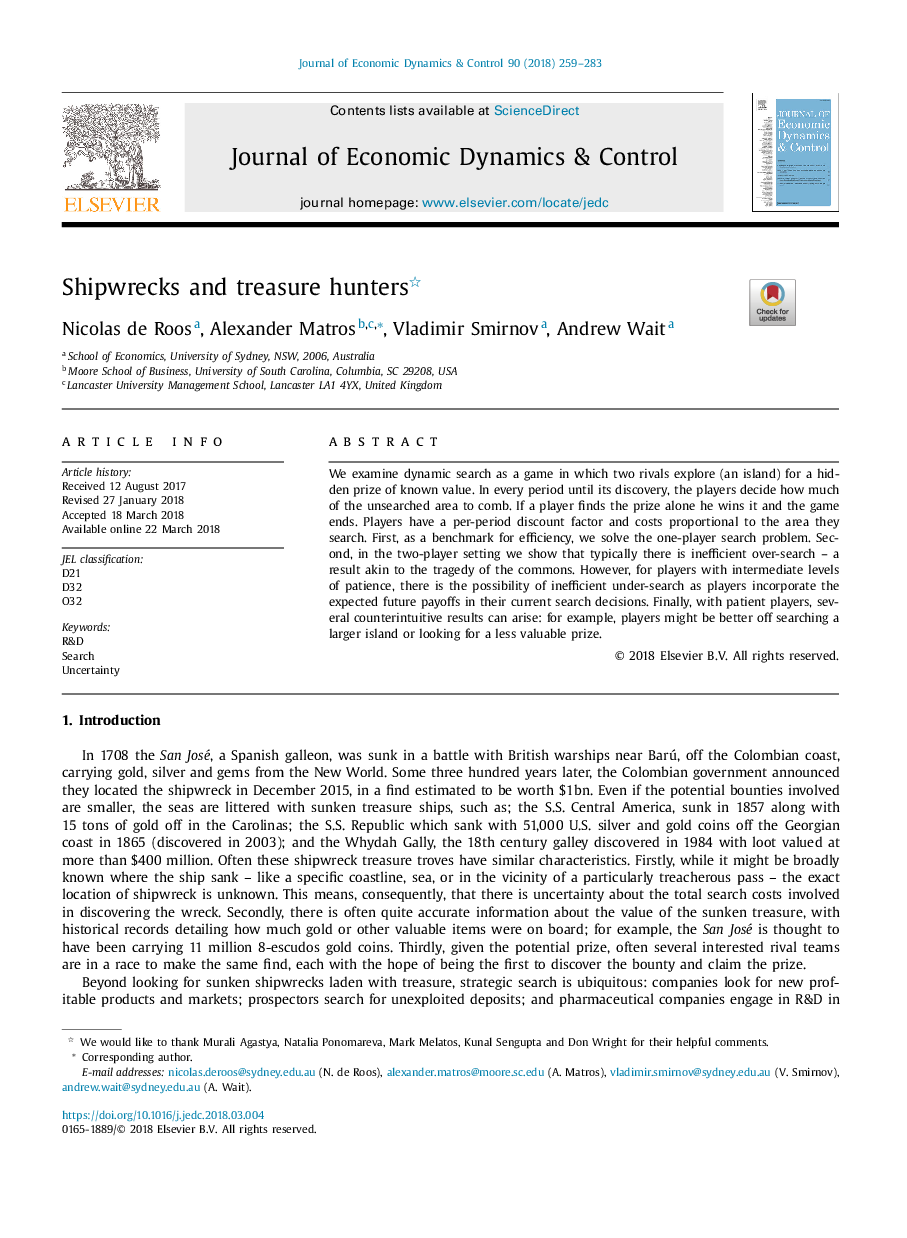| Article ID | Journal | Published Year | Pages | File Type |
|---|---|---|---|---|
| 7358727 | Journal of Economic Dynamics and Control | 2018 | 25 Pages |
Abstract
We examine dynamic search as a game in which two rivals explore (an island) for a hidden prize of known value. In every period until its discovery, the players decide how much of the unsearched area to comb. If a player finds the prize alone he wins it and the game ends. Players have a per-period discount factor and costs proportional to the area they search. First, as a benchmark for efficiency, we solve the one-player search problem. Second, in the two-player setting we show that typically there is inefficient over-search - a result akin to the tragedy of the commons. However, for players with intermediate levels of patience, there is the possibility of inefficient under-search as players incorporate the expected future payoffs in their current search decisions. Finally, with patient players, several counterintuitive results can arise: for example, players might be better off searching a larger island or looking for a less valuable prize.
Related Topics
Physical Sciences and Engineering
Mathematics
Control and Optimization
Authors
Nicolas de Roos, Alexander Matros, Vladimir Smirnov, Andrew Wait,
